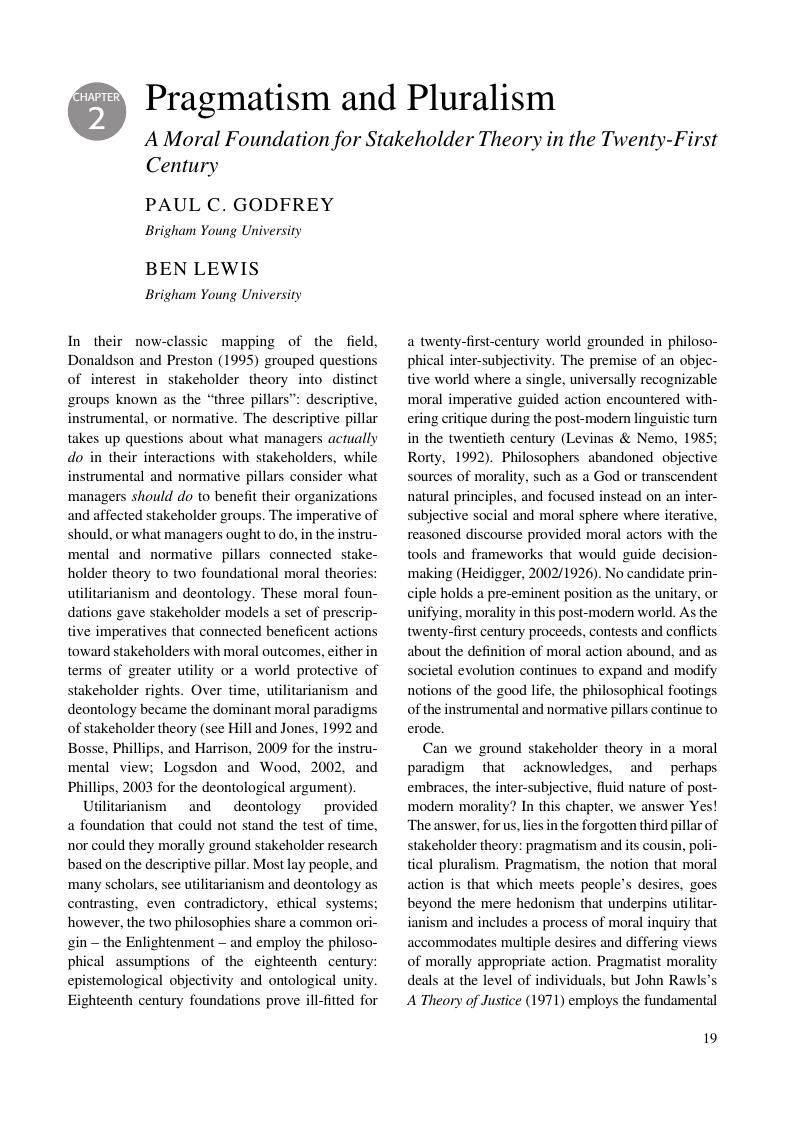Book contents
- The Cambridge Handbook of Stakeholder Theory
- The Cambridge Handbook of Stakeholder Theory
- Copyright page
- Contents
- Contributors
- Chapter Summaries
- Part I Theoretical Foundations of Stakeholder Theory
- Chapter 1 Stakeholder Theory*
- Chapter 2 Pragmatism and Pluralism
- Chapter 3 Critical Management Studies and Stakeholder Theory
- Chapter 4 Stakeholder Identification and Its Importance in the Value Creating System of Stakeholder Work
- Part II Stakeholder Theory and Society
- Part III Stakeholder Theory in the Business Disciplines
- Part IV Stakeholder Theory in Education and Practice
- Part V New Voices in Stakeholder Thinking
- Index
- References
Chapter 2 - Pragmatism and Pluralism
A Moral Foundation for Stakeholder Theory in the Twenty-First Century
from Part I - Theoretical Foundations of Stakeholder Theory
Published online by Cambridge University Press: 01 May 2019
- The Cambridge Handbook of Stakeholder Theory
- The Cambridge Handbook of Stakeholder Theory
- Copyright page
- Contents
- Contributors
- Chapter Summaries
- Part I Theoretical Foundations of Stakeholder Theory
- Chapter 1 Stakeholder Theory*
- Chapter 2 Pragmatism and Pluralism
- Chapter 3 Critical Management Studies and Stakeholder Theory
- Chapter 4 Stakeholder Identification and Its Importance in the Value Creating System of Stakeholder Work
- Part II Stakeholder Theory and Society
- Part III Stakeholder Theory in the Business Disciplines
- Part IV Stakeholder Theory in Education and Practice
- Part V New Voices in Stakeholder Thinking
- Index
- References
Summary

- Type
- Chapter
- Information
- The Cambridge Handbook of Stakeholder Theory , pp. 19 - 34Publisher: Cambridge University PressPrint publication year: 2019
References
- 10
- Cited by



